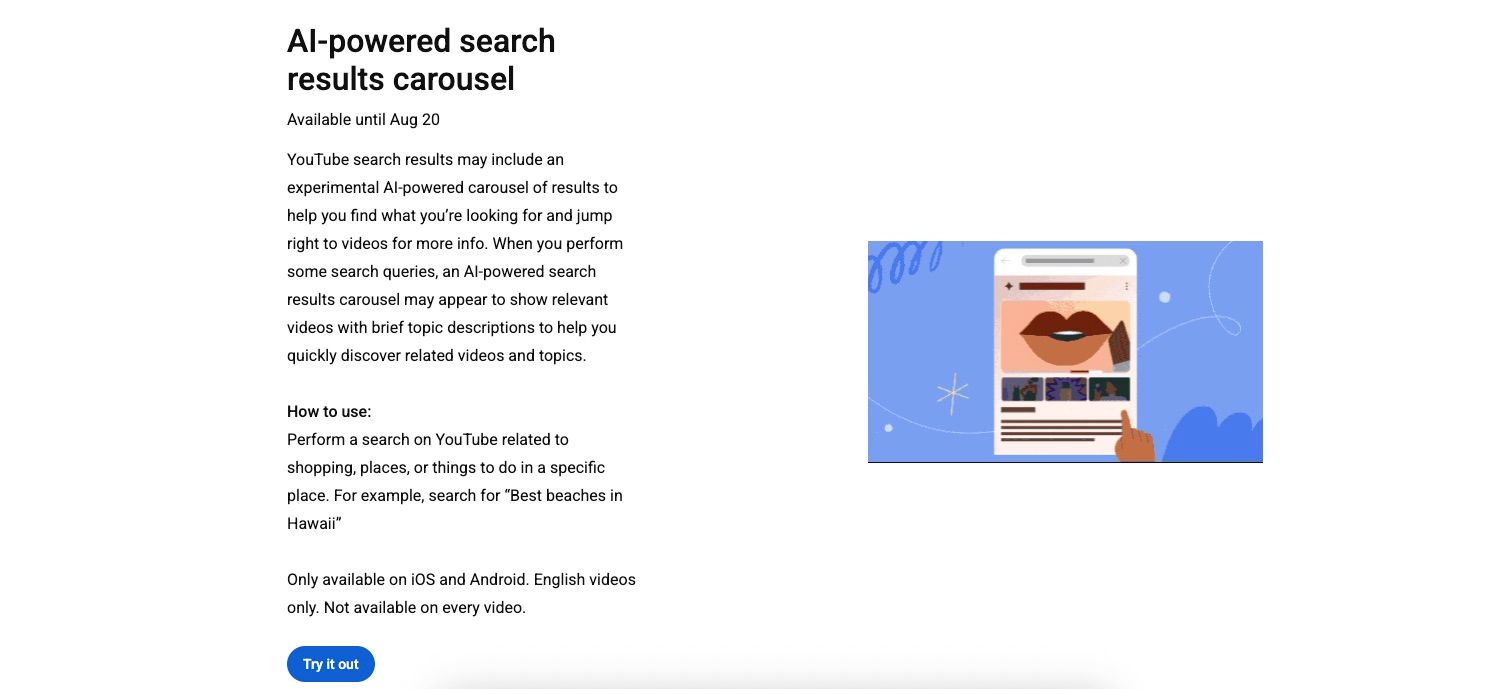AI is a key part of YouTube’s four bets for 2025. Back in June, we saw some of that materialize with the streaming platform adding AI-powered video search functionality. However, the feature was only available to a few users in the US as part of an experiment. But that appears to be changing now.
While the feature is still exclusively available to YouTube Premium users in the US, a report by Android Authority indicates it’s now rolling out to more subscribers in the region. It’s currently limited to YouTube’s mobile apps, including iOS, and it’s also only available in English.
YouTube’s experiments page clarifies that this AI search functionality will be around until August 20. While it’s unclear what happens after that, there may be a chance that it will be rolled out more widely to all Premium users across the globe.
YouTube’s AI-powered search won’t work on all topics
If you’re in the US and have a Premium subscription, visit the experiments page to learn if it’s unlocked for you. Though it’s a neat concept to help you quickly find videos on YouTube, these AI-powered search results won’t cover all the topics you may typically search for.
As Google explained in June, the AI search results carousel will only show up for “searches related to shopping, travel, or things to do in a specific place,” demonstrating at the time with a search for the “best beaches in Hawaii,” as the video above shows.
Depending on where you live, YouTube Premium’s list of experiments is currently short. Another experiment currently available to Premium subscribers is comment threading, which was introduced in February but was somewhat incomplete. However, YouTube addressed those shortcomings with a subsequent update last month, while also making it more widely available to Premium users.
This is similar to what’s happening with the AI search feature now. Although it never encountered any functionality-related issues, it was only available to a small number of YouTube Premium customers in the US. However, with the feature now widely rolling out, YouTube can expect more feedback on its potential as a replacement or alternative to conventional search.


